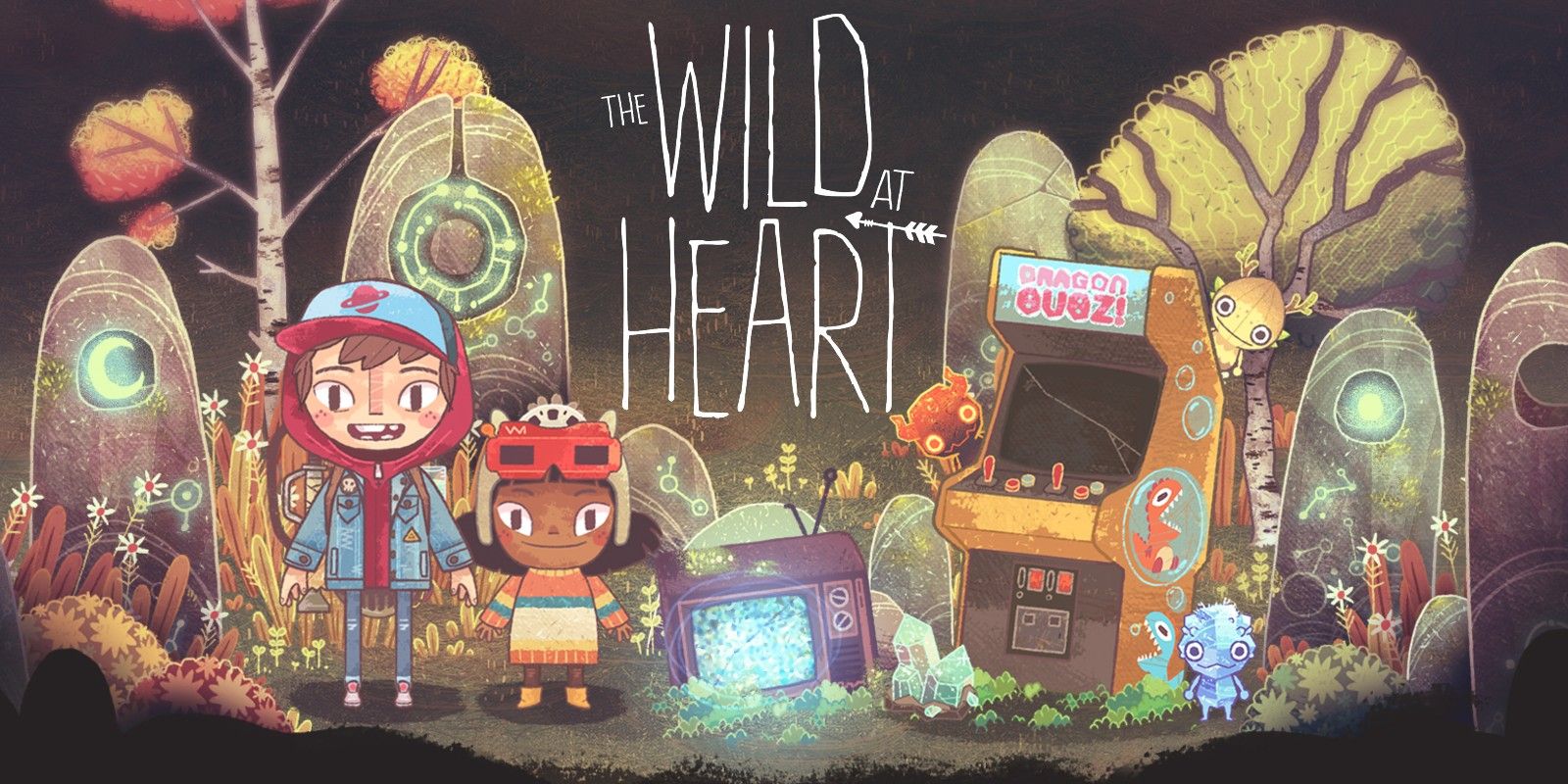Moonlight Kids’ action-adventure/strategy puzzle game The Wild at Heart combines the Metroidvania style and features mechanics from the Pikmin series to design a gorgeous fantasy world with a rich and compelling story. The Wild at Heart follows two precocious children, Wake and Kirby, as they fulfill the classic childhood fantasy of running away from home. They are guided into a unique and mystical world called the Deep Woods and must help its inhabitants find and rescue a few guardians who have lost their way. During their journey, Wake and Kirby meet colorful characters and collect and hatch a small army of creatures called spritelings to help them gather resources, discover and craft recipes, and battle hostile creatures.
The Wild at Heart is strikingly beautiful, with unique and stylistic graphics that immediately immerse players in this new fantasy realm. The art style feels unique but reminiscent of Over the Garden Wall. There are so many details to the world, with something new to see and interact with at every stage. Many of the denizens of the Deep Woods have memorable, quirky features about them, like an alchemist wearing robes and a plague mask, or a collector with a tea kettle for a head, aptly named Scrap Heap. The art style combines with a sweeping soundtrack that always fits the mood of the various parts of the forest and the story to create the ideal fantasy atmosphere.
The mechanics in The Wild at Heart appear simple but are in practice much deeper than that. The puzzles are a main standout of the game and players must figure out how to solve them to progress through the level. These puzzles are challenging, but the solutions are simple enough to ensure players don’t get too stuck. They are also varied; even as Wake and Kirby learn how to interact with various objects, there will always be something new to figure out.
The other major feature is the spriteling mechanic. Like Pikmin, these adorable creatures have unique abilities to withstand certain elements and hazards around the woods. They will follow behind Wake and can be tossed at obstacles and loot. They break rocks and other objects with their heads to access crafting materials or destroy barriers and will fight when tossed at enemies. They can be hatched from pips at a Spirit Well and withdrawn any time to help during the kids’ adventure. Wake can only have a limited number of spritelings with him in the field at any time, while the rest remain in storage. While spritelings do have a tendency to wander off or get stuck and lost, they are fairly easy to corral using Wake’s Ghostbusters-style vacuum machine. They can also carry items for Wake in the somewhat common event he runs out of inventory space and can’t upgrade.
The upgrade system offers more fun and challenging puzzles. Wake can help the guardians refurbish their main hub by finding scrap, spare parts, and specialty pieces like cogs, shells, and campers by exploring the Deep Woods. These open new upgrade opportunities, including health upgrades, spriteling improvements, and objects that can simplify exploration. Nearly everything the spritelings open or break will contain some scrap, and there are many ways to collect other loot in the woods. Players will need to discover many of the available recipes on their own by combining the various resources they find, adding another layer to the exploration and puzzle mechanics.
The Wild at Heart takes players on an immersive, whimsical adventure of childhood fantasy. The beautiful artwork and detail of each level enhance the deep, story-rich world. Beyond the graphics, players of all ages can enjoy engaging puzzles and a robust crafting system that help them interact with the environment and access new areas to explore. The Pikmin-like mechanic with spritelings is innovative for this particular genre, and it works well for the story and characters. Fans of indie adventure and puzzle games should consider crossing into the Deep Woods to join Wake and Kirby on this memorable journey.
The Wild At Heart is available for PC and Xbox One. A Steam key was provided to Screen Rant for the purpose of this review.
About The Author
